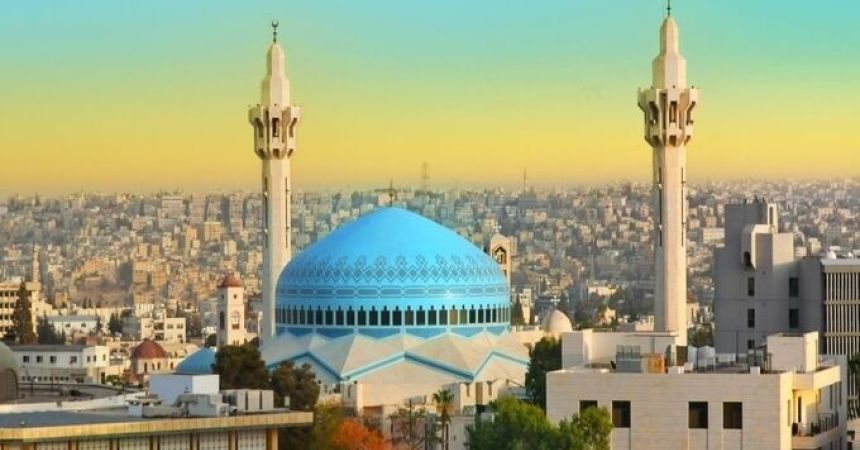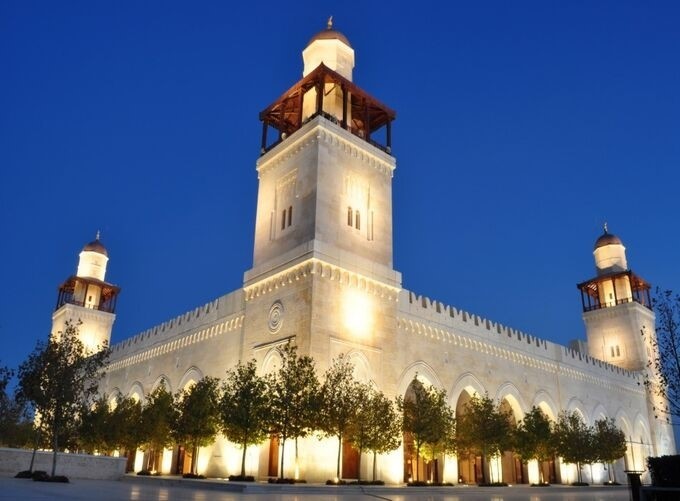
Traveling Jordan During Ramadan
Ramadan, the holy month of fasting and reflection, is one of the most significant times of the year in Jordan and across the Muslim world. While traveling during this month offers unique cultural insights, it also comes with certain challenges and adjustments for visitors. In this guide, we’ll cover everything you need to know about visiting Jordan during Ramadan, from etiquette and dining options to cultural experiences and practical tips.
What is Ramadan?
Ramadan is the ninth month of the Islamic lunar calendar, observed by Muslims around the world as a period of fasting, prayer, and reflection. Fasting during Ramadan involves abstaining from food, drink, smoking, and other physical needs from dawn until sunset each day. This period, lasting 29 or 30 days, ends with Eid al-Fitr, a joyous festival marking the conclusion of the fast.
What to Expect in Jordan During Ramadan
Altered Business Hours: Many businesses, government offices, and shops have shortened hours to accommodate fasting schedules.
Quieter Daytime Atmosphere: During the day, Jordan’s streets and markets may be quieter, with less bustling activity.
Vibrant Nights: After sunset, streets come alive with people gathering for Iftar (the evening meal) and enjoying late-night festivities.
Community Spirit: Ramadan emphasizes charity, community, and family gatherings, creating a warm and welcoming atmosphere for visitors.
Etiquette for Travelers During Ramadan
Being respectful of local customs is essential during Ramadan. Here are some etiquette tips to follow:
-
Refrain from Eating or Drinking in Public
During fasting hours, avoid eating, drinking, or smoking in public. While not mandatory for non-Muslims, it’s a sign of respect for those who are fasting.
- Tip: If you need to eat or drink, try to do so discreetly in a private or designated area.
-
Dress Modestly
Jordan is a conservative country, and modest dress is appreciated, especially during Ramadan. For women, it’s advisable to wear loose clothing that covers the shoulders and knees. Men should also avoid wearing shorts or sleeveless shirts.
- Tip: Bring a scarf for visiting religious sites or covering up when needed.
-
Be Mindful of Noise Levels
Out of respect for the spiritual nature of Ramadan, avoid loud conversations, music, or other disturbances during the day.
- Tip: Use headphones if you want to listen to music or watch videos.
-
Respect Prayer Times
Muslims pray five times a day, with increased emphasis on prayer during Ramadan. You may notice stores closing briefly for prayers.
- Tip: Use this time to explore nearby attractions or take a short rest.
Dining During Ramadan in Jordan
Finding food and dining options during Ramadan may require a bit of planning, but many establishments continue to serve food for tourists.
-
Hotel Restaurants
Most international hotels in Jordan cater to non-Muslim guests by offering meals during the day. Breakfast and lunch are usually available, so staying at a hotel with a restaurant can simplify your dining options.
- Tip: Check with your hotel in advance to confirm meal availability during Ramadan.
-
Restaurants Serving Tourists
In popular tourist areas, such as Petra, Wadi Rum, and parts of Amman, select restaurants remain open during the day to serve non-fasting guests.
- Tip: Call ahead or check online to verify if a specific restaurant is open.
-
Iftar: A Unique Cultural Experience
Iftar is the meal eaten at sunset to break the fast. It’s a significant event and a perfect opportunity for visitors to join in on Jordanian traditions.
Where to Try Iftar: Many restaurants offer special Iftar buffets, featuring traditional dishes and desserts like dates, lentil soup, and kunafa.
Community Iftar Tents: In some areas, locals set up communal tents where both locals and visitors are invited to enjoy Iftar together.
-
Suhoor: The Pre-Dawn Meal
Suhoor is the meal eaten before dawn, marking the beginning of the daily fast. It’s usually lighter and may consist of bread, yogurt, eggs, and tea.
- Tip: If you’re an early riser, join in for a Suhoor meal at your hotel or a local eatery for an authentic experience.
Sightseeing and Activities During Ramadan
Many of Jordan’s most Jordan's popular attractions remain open during Ramadan, but it’s essential to check opening hours and make some adjustments to your schedule.
-
Petra
Petra remains open, though it’s quieter during Ramadan. This can be a positive for visitors looking to explore without large crowds.
- Hours: Petra’s standard hours usually remain unchanged, but it’s wise to confirm in advance.
- Tip: Visit in the early morning or late afternoon when temperatures are cooler and activity levels are low.
-
Wadi Rum
Wadi Rum’s desert landscape and Bedouin culture make it a fantastic destination during Ramadan. Bedouin guides often provide Iftar and Suhoor meals at camps, offering a unique cultural experience.
- Tip: Plan for evening activities like stargazing and sunset viewing to make the most of the cooler nighttime temperatures.

-
Dead Sea
Most resorts around the Dead Sea remain open, and the area is less affected by Ramadan customs, making it a relaxing spot to visit. However, some resort restaurants may adjust meal hours.
- Tip: Book in advance for Iftar meals at resorts, as many locals also gather here to break the fast.
-
Amman
Amman is more subdued during the day in Ramadan, with some cafes and restaurants closed. However, the evenings are lively, with locals gathering to break the fast and enjoy the city’s vibrant atmosphere.
- Highlights: Visit the Amman Citadel, Roman Theatre, and stroll along Rainbow Street in the evening.
Shopping During Ramadan
Shopping during Ramadan can be an exciting experience. Many shops stay open late into the night, and vibrant markets spring to life after Iftar.
-
Amman Souks
The souks in downtown Amman offer a unique shopping experience with traditional items like spices, textiles, and handicrafts.
- Tip: Shop after Iftar when stores are open, and the atmosphere is lively.
-
Special Ramadan Sales
Many shops offer discounts and special deals during Ramadan, especially on clothing and household goods.
- Tip: Bargaining is common in Jordanian markets, so feel free to negotiate prices respectfully.
Special Ramadan Events and Traditions
-
Taraweeh Prayers
Taraweeh is a special prayer performed each evening during Ramadan. In Amman and other cities, mosques are beautifully lit and filled with worshippers during this time.
Where to Observe: Visit the King Abdullah Mosque in Amman to witness the prayers respectfully from a distance.
-
Iftar Tents and Community Gatherings
Many communities set up public Iftar tents, where locals and visitors are invited to break their fast together. It’s a wonderful opportunity for travelers to connect with locals and experience Jordanian hospitality.
-
Cultural Nights
In larger cities like Amman, some cultural organizations hold evening events showcasing traditional music, dance, and art during Ramadan. These events are family-friendly and welcoming to visitors.
Practical Tips for Traveling Jordan During Ramadan
Plan Around Business Hours: Many government offices, banks, and businesses operate on reduced hours, typically closing early in the afternoon.
Stay Hydrated and Energized: The daytime heat can be intense, so stay hydrated, but do so discreetly in private areas.
Adjust Your Schedule for Evening Activities: Many Jordanians rest during the day and are active in the evening, so planning nighttime activities can enhance your experience.
Respect Local Customs: While you aren’t required to fast, showing respect for the cultural norms goes a long way.
Book Restaurants in Advance for Iftar: Restaurants can get busy at Iftar, so it’s wise to make reservations if you want to dine out.
Advantages of Visiting Jordan During Ramadan
Unique Cultural Experience: Witness the traditions, generosity, and community spirit that define Jordanian culture during Ramadan.
Fewer Tourists: Ramadan is considered an off-peak season, so major attractions are often less crowded.
Special Ramadan Food and Festivities: Savor unique Ramadan dishes and desserts, and enjoy a lively atmosphere in the evenings.
Night Markets and Events: Enjoy night shopping and cultural events that only happen during Ramadan.
Potential Challenges and How to Overcome Them
Limited Daytime Dining Options: Plan to stay in hotels with restaurants that serve non-fasting guests or seek out tourist-friendly cafes.
Restricted Business Hours: Plan your visits to banks, offices, and some attractions in the early morning when they are open.
Heat and Dehydration: Keep a bottle of water in your bag and drink it discreetly, especially if you’re spending time in the desert or other outdoor locations.
Explore the Desert and Ruins of Jordan
Traveling in Jordan during Ramadan is a culturally enriching experience that offers a unique perspective on Jordanian life, traditions, and hospitality. With a bit of planning and respect for local customs, you can have a memorable journey exploring Jordan’s wonders, sharing in Iftar celebrations, and soaking in the beautiful traditions of the holy month.



